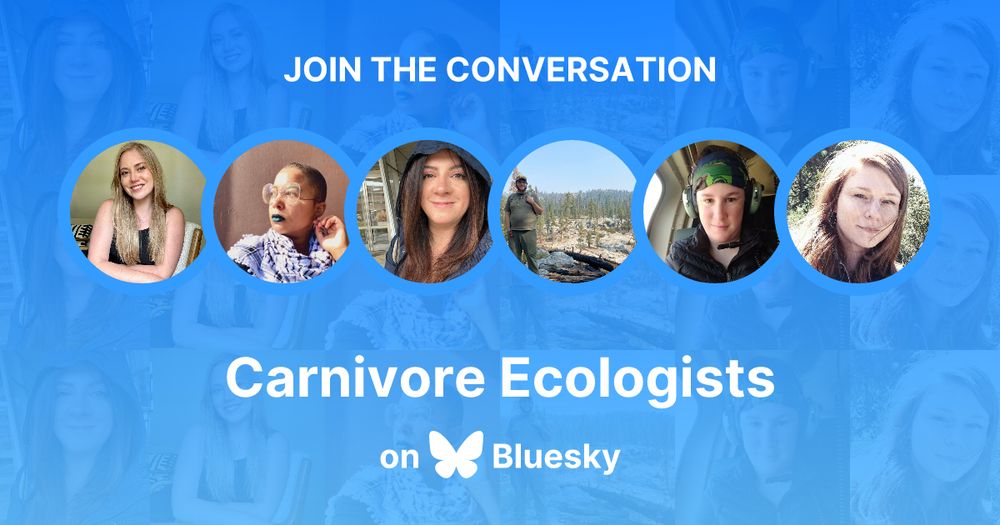
Data scientist 👩🏻💻
Latina in STEM 🇬🇹
rstats, ecology, Bayesian stats.
gabspalomo.github.io

🧪🌎
go.bsky.app/7hdbr6C
Free to read: rdcu.be/eRKbv

Free to read: rdcu.be/eRKbv
Tune in to King 5 on Saturday, November 29 at 9:00am to watch the full episode!

Tune in to King 5 on Saturday, November 29 at 9:00am to watch the full episode!



Maybe we can put a bit more attention on community-based solutions, affordable decarbinization tools, and markets?
Maybe we can put a bit more attention on community-based solutions, affordable decarbinization tools, and markets?


www.huffpost.com/entry/histor...

www.huffpost.com/entry/histor...
Sci Am story: www.scientificamerican.com/article/this...
Paper: www.science.org/doi/10.1126/...

Sci Am story: www.scientificamerican.com/article/this...
Paper: www.science.org/doi/10.1126/...
phys.org/news/2025-11...

phys.org/news/2025-11...
The fawns and older animals are at the center, the strongest animal in the outer lanes.
The point is to confuse the brains of predators accustomed to stalking a single outlier.
The fawns and older animals are at the center, the strongest animal in the outer lanes.
The point is to confuse the brains of predators accustomed to stalking a single outlier.
conbio.onlinelibrary.wiley.com/doi/full/10....
/1
conbio.onlinelibrary.wiley.com/doi/full/10....
/1
See an (adorable) bat covered in pollen and learn why a world without bats would be a world without tequila in this week’s Surprising Science. 🦇
Q&A with Stéphane Blanc, research director at CNRS, about the Long-term Studies in Ecology and Evolution programme and its priorities for supporting long-term monitoring and research
Free to read: rdcu.be/eQltU

Q&A with Stéphane Blanc, research director at CNRS, about the Long-term Studies in Ecology and Evolution programme and its priorities for supporting long-term monitoring and research
Free to read: rdcu.be/eQltU


I got up at 4:00 am for a month to find out.
but first the backstory, or "how I spent seven years telling everyone this project wasn't possible"
new paper here:
esajournals.onlinelibrary.wiley.com/doi/full/10....

I got up at 4:00 am for a month to find out.
but first the backstory, or "how I spent seven years telling everyone this project wasn't possible"
new paper here:
esajournals.onlinelibrary.wiley.com/doi/full/10....
Owing to interactions among drivers, and the increasing spread of new & well-established alien species, "simple extrapolations from the impacts of invasive alien species observed today are likely to underestimate the magnitude of future impacts."
phys.org/news/2024-06...

Owing to interactions among drivers, and the increasing spread of new & well-established alien species, "simple extrapolations from the impacts of invasive alien species observed today are likely to underestimate the magnitude of future impacts."
phys.org/news/2024-06...


